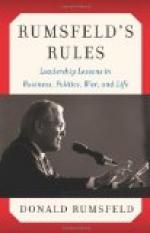The Government, by its action in the first half of September, decided that Sir George White must defend Natal for about five weeks[A] with sixteen thousand men against the bulk of the Boer army, which was likely to be double his own force. It was evidently expected that he should hold his ground near Ladysmith and thereby cover Natal to the south of the Tugela. This double task was quite disproportionate to his force. If Ladysmith had been a fortress, secure for a month or two against assault, and able to take care of itself, the field force using it as a base could no doubt have covered Natal. But in the absence of a strong place there were only two ways by which a small force could delay the Boer invasion. The force might let itself be invested and thereby hold a proportion of the Boer army, leaving the balance to raid where it could, or the campaign must be conducted as a retreat from position to position. For a general with ten thousand men and only two hundred miles of ground behind him to carry on a retreat in the face of a force double his own so as to make it last five, weeks and to incur no disaster would be a creditable achievement. Sir John Moore is thought to have shown judgment and character by his decision to retreat before a greatly superior force, commanded it is true by Napoleon himself. Moore when he decided to retreat was about as far from Corunna as Dundee is from Durban, and Moore’s retreat took nineteen days. He had the sympathy if not the effective help of the population, and was thought to have been clever to get out of the trap laid for him. Sir George White seems to have been expected as a matter of course to resist the Boer army, to prevent the overrunning of Natal by the Boers, and to preserve his own force from the beginning of October to the middle of November.[B] The Government expected the Boers to attack as soon as they should hear of the calling out of the Reserves, that being the reason why the Reserves were not called out earlier. Therefore Sir George White’s campaign was timed to last from October 9th to November 15th (December 15th). I conclude that the force to be given to Sir George White was fixed by Lord Lansdowne at haphazard, and that the calculations of the military department were put on one side, this unbusinesslike way of playing with National affairs and with soldier’s lives being veiled from the Secretary of State’s mind by the phrase, “political reasons.” But the “political reason” for exposing a Nation’s troops to unreasonable risks and




